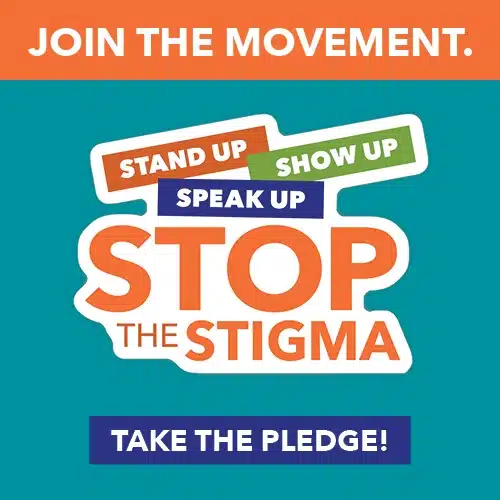“Where to Start: Mental Health in a Changing World,” this May’s Mental Health Awareness Month theme from Mental Health America, brings to light various environmental and personal stressors that affect mental health. Some are more obvious than others, for example, the “breaking news” cycle, while others can be more internal, like loneliness.
Consciously or unconsciously, there are four factors that might be affecting your mental health. Let’s dive in:
Current Events
Violent and disturbing events impact people across the world. Maybe you have family in a conflict zone, are worried about increases in identity-based hate, or have no personal ties to a particular news event but are constantly seeing graphic images online. A 2022 study found that 73% of American adults reported being overwhelmed by the number of crises going on in the world.
Social Drivers/ Social Determinants
Social drivers of health are the environments in which you live, work, learn, and play. These include economic status, education, your neighborhood, access to resources (nutritious food, health care, green space, transportation, etc.), and social inclusion, can have a far-reaching impact on not just your physical health, but also your mental health.
One social driver that seems to be on everyone’s mind is the economy. Research shows a strong connection between worrying about money and mental distress, and for many people, salaries can’t seem to keep up with rising inflation and cost-of-living expenses. A 2023 Gallup poll found that 42% of Americans are worried that they don’t have enough money to pay their normal monthly bills.
Loneliness
A recent survey showed that more than half of U.S. adults (58%) are lonely, with those who are low income, young adults, parents, part of an underrepresented racial group, or living with a mental health condition experiencing even higher rates of loneliness. Loneliness increases the risk of developing anxiety and depression and has been associated with psychosis and dementia. A low level of social interaction was also found to have an impact on lifespan, the equivalent to smoking nearly a pack of cigarettes a day or alcoholism, and was twice as harmful as being obese.
Technology
While having access to the internet at your fingertips can be a fantastic thing, it isn’t without its downfalls. Exposure to constant [bad] news coverage and contentious political campaigns can make anyone’s mood sour and cause anxiety about what lies ahead. In fact, almost 60% of young people (ages 18-25) expressed considerable worry about the future of the planet. Social media is known to cause FOMO (fear of missing out), depression, and reduced self-esteem as a result of constant comparison. Furthermore, the lines between work and personal time are blurred by working from home and after-hours email notifications on your phone, increasing the likelihood of burnout.
Here are a few ways you can actively manage your mental health:
Find your support system.
Having people around you to support your mental and emotional health can make all the difference. Finding those who lift you up, provide a listening ear, and help you through stressful times can make all the difference for your mental health.
Set technology limits for yourself.
Some things to try are blocking social media use between certain hours, putting time limits on apps, checking your phone settings, or downloading a website/app blocker.
Change what you can.
With the state of the world, life can feel overwhelming, and as if nothing you do will make a difference. The good news is there are some things you can do. Taking action and advocating for causes important to you can be therapeutic in its own way.
Develop healthy coping skills.
Invest some time into figuring out what works best to help you manage your feelings. You may have to try a bunch of things until you find something that works, but it will be worth it.
Above all, remember, you are not alone. If you are struggling with your mental health, there is help available. Our programs throughout New Jersey give individuals the opportunity to make healthy choices, stabilize symptoms of illness and eventually reach his or her full potential. To learn more about Oaks services or schedule an appointment, take the first step and call our Access Center at 1-800-963-3377.










